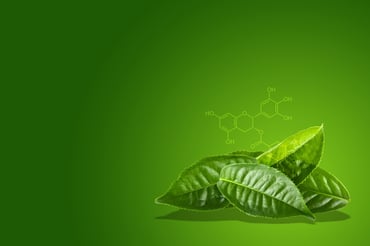eStoreRx™
Online Supplement Dispensary
eStoreRx™ is an easy direct-to-patient ordering & fulfilment program for lifelong wellness.
For over 40 years, Biotics Research Corporation has revolutionized the nutritional supplement industry by utilizing “The Best of Science and Nature”. Combining nature’s principles with scientific ingenuity, our products magnify the nutritional
eStoreRx™ is an easy direct-to-patient ordering & fulfilment program for lifelong wellness.
Biotics Research is proud to expand our commitment to education with the Wellness Unfiltered Pro Podcast. Each episode delves into key health topics and the clinical applications of our premier products. Through candid, insightful conversations, our team offers practical guidance to keep you informed and empowered as a healthcare professional.
February 03 2026
From bodybuilders looking to bulk up to everyday folks trying to drop a few pounds, people have practiced tracking their food for decades. Tracking ca...
 Common knowledge tells us that green tea is a healthy beverage, but evidence suggests that it may in fact have more natural brain benefits than most people realize.
Common knowledge tells us that green tea is a healthy beverage, but evidence suggests that it may in fact have more natural brain benefits than most people realize.
Aside from water, tea is the most popular beverage in the world. It’s consumed by two-thirds of the world’s population. And while black tea accounts for 78% of total tea production, green tea is the variety that may have particularly powerful brain benefits.
Regardless of variety, black, green, oolong, dark and white teas all come from the same plant, Camellia sinensis. Black tea leaves are crushed after picking so they become oxidized. Green tea, on the other hand, is lightly steamed and carefully preserved to prevent oxidation. Both black tea and green tea contain the same beneficial flavonoids and free radical scavengers. However, green tea contains higher flavonoid levels.
Green Tea Compounds That Benefit Brain Health
Green tea gets its brain health benefits from the plant chemicals, or phytochemicals, it contains.
One of those is epigallocatechin-3-gallate (EGCG), the main and most bioactive catechin flavonoid contained in green and black tea. It has a number of interesting properties. Studies show that it may prevent free radical damage to cells and inhibit cellular oxidation. It is also thought to be a neuroprotective agent and an anti-neuroinflammatory substance. It has also been seen to cross the blood-brain barrier in animals, meaning it could affect the brain directly. Several studies show its potential in protecting against nerve cell damage, brain edema, and as a secondary preventative agent of neurodegeneration.
It is thought that EGCG may particularly promote brain health due to its anti-inflammatory and free radical scavenging properties, as well as its ability to inhibit an important enzyme involved in nerve system communication called acetylcholinesterase. In a study on EGCG and ferulic acid (FA), another phytochemical that can be extracted from fruits and vegetables, the researchers randomly assigned 12-month-old mice with Alzheimer’s-like symptoms to one of four groups.
Before the study, the mice were subjected to a battery of thinking and memory tests similar to those used to assess human dementia symptoms, as well as some tests to check their brain health. They then gave each mouse a 30 mg dose per kilogram of bodyweight of combination of EGCG and FA, just one of the substances, or a placebo, for a period of three months. Once the three months had come to a close, the mice were tested again in the same way as before their nutraceutical combination therapy.
After the EGCG and FA combination treatment, the genetically-programmed mice showed a restored working memory, fewer beta-amyloid deposits in their brains and less inflammation in their brains, suggesting improved brain health.
The next brain boosting phytochemical of interest is L-theanine. This amino acid has been seen to improve alpha wave, dopamine, serotonin and GABA activity in animals, reduce perceived mental stress and anxiety, and support cognitive function, attention and complex problem-solving. One study shows that green tea samples contain an average 6.6 mg of L-theanine per gram.
L-theanine could help you stave off drowsiness, too. Interestingly, L-theanine can relax your mind, calm you down, and make you alter at the same time. A 2008 study measured healthy, young participants’ brains with an electroencephalograph (EEG) before consuming 50 mg of L-theanine, or a placebo, then again after 45, 60, 75, 90 and 105 minutes. The results showed greater alpha wave activity, which is associated with a calm mental state, after they had taken the L-theanine. They were also more mentally alert.
Is All Green Tea Made Equal?
All green tea may benefit you, but there are certain types of green tea that may be worth looking out for. For example, brewed green tea is thought to contain more free radical scavengers than bottled green tea. Organic green tea will help you avoid consuming pesticide residues, which have been shown to affect brain health negatively. Another way to boost the benefits of the green tea you consume is to add a squirt of lemon juice to your cup. One study showed that citrus juice can increase the levels of catechins like EGCG by more than five times.
The question is, now that you know the brain benefits of green tea, will you drink more of it?
Related Biotics Research Products:
Submit this form and you'll receive our latest news and updates.
*These statements have not been evaluated by the Food and Drug Administration. This product has not intended to diagnose, treat, cure, or prevent any disease.
© 2025 Biotics Research Corporation - All Rights Reserved
Submit your comment